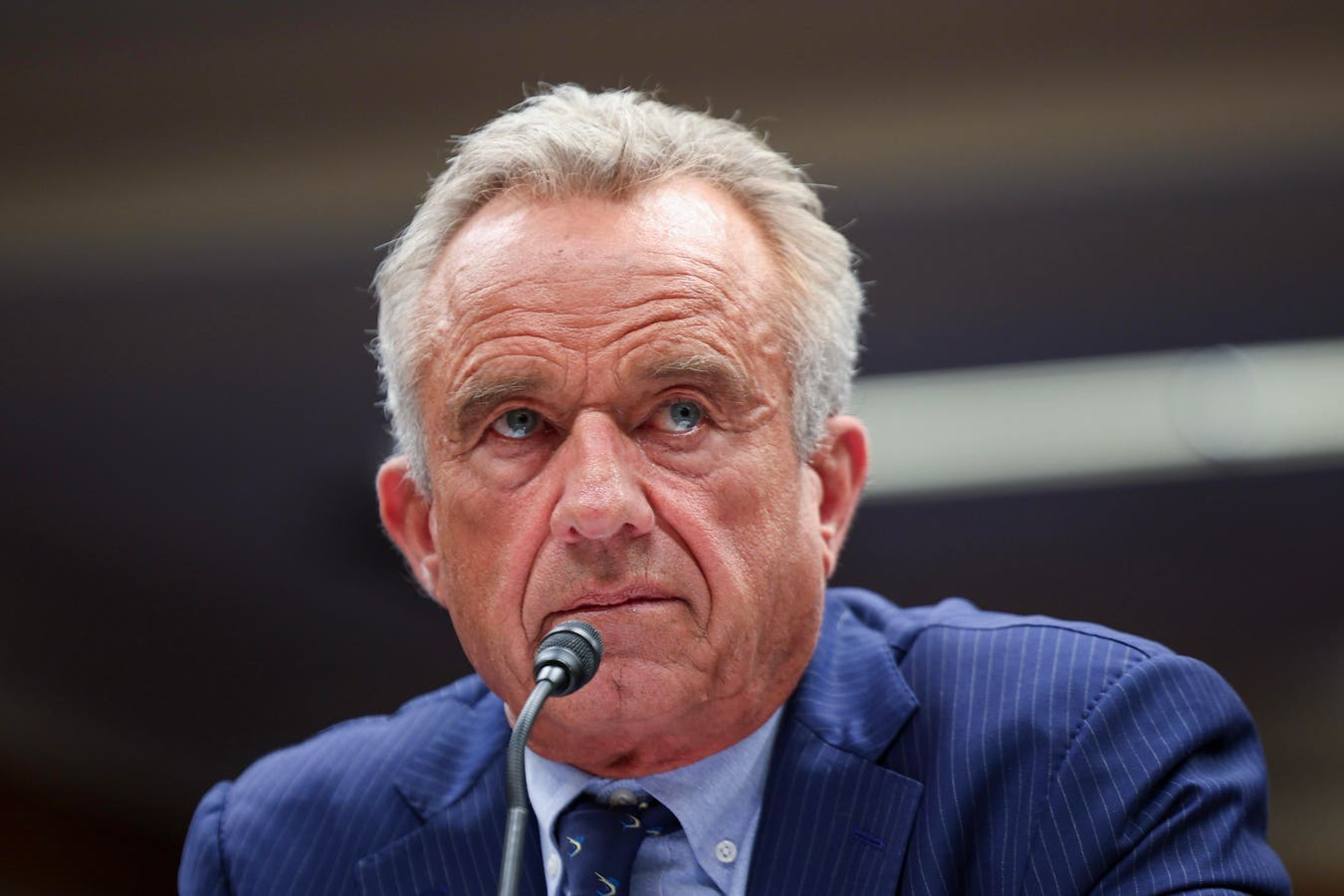WASHINGTON, DC: Secretary of Health and Human Services Robert F. Kennedy Jr. testifies before the … More
Earlier this year, the National Institutes of Health dismantled the National Cancer Institute’s Board of Scientific Advisors, which had 28 members. And now Health and Human Services Secretary Robert F. Kennedy Jr fired the entire 17-member Advisory Committee on Immunization Practices that provides recommendations on vaccines to the Centers for Disease Control and Prevention. This raises the question, who’s going to do the advising? With no replacement forthcoming, at NCI it would appear that the National Cancer Advisory Board will have to go it alone. At ACIP, it’s likely Kennedy will appoint people to the advisory committee without a vaccine industry pedigree, including like-minded vaccine skeptics.
The importance of having independent expert panels in the oncology and vaccine spaces is hard to overstate. Cancer is America’s second-leading cause of death. NCI is the nation’s premier funder of cancer research. And regarding vaccines, from smallpox inoculations—which began in the late 18th century and ended when the disease was eradicated in the 1970s—to mumps, rubella, tetanus, diphtheria, polio, measles, hepatitis B, human papilloma virus, respiratory syncytial virus, pneumococcal and COVID-19 immunizations, vaccinations have saved millions of lives and prevented life-threatening illnesses from occurring. What happens next in terms of decisions by Kennedy and the various HHS agencies will matter considerably to public health.
Advisory Committee on Immunization Practices
Kennedy seeks to radically reshape the vaccine policy landscape as he ousts CDC’s ACIP, which advises the CDC director on which vaccines approved by the Food and Drug Administration should be used; for example, recommending which groups of people ought to be vaccinated, at what doses and when. For decades, ACIP’s guidance has been based on an independent, non-politicized review of the peer-reviewed scientific research as well as debate among the committee experts. ACIP’s guidance is not binding, though CDC almost always follows it and provides recommendations to the public on what is to be included in the United States adult and childhood immunization schedules.
In a press release issued by the Department of HHS on June 9th, Kennedy says he’s doing this in order to restore the public’s trust in vaccine science in America. It’s unknown who Kennedy will hire to replace committee members, but it’s possible that at least some of the people he appoints will share his skeptical views of vaccines.
The Department of HHS said ACIP will still meet June 25-27, but with new membership. This means that between now and then, presumably we’ll know the list of new members. In determining who’s to be on the ACIP committee, Kennedy says he wants to eliminate conflicts of interest that panel members may have with the industry. But Science describes an already existing process in place for vetting candidates and probing for potential conflicts of interest. Indeed, looking at the current ACIP members, conflicts of interest aren’t readily apparent among the large number of academics, a chief medical officer of a community health center, a state public health official and the owner of a family medicine practice. But Kennedy seems to view them differently. Given that several members have prior to their ACIP membership pursued research funded in part by grants to universities from the pharmaceutical industry, while others have advocated for certain childhood vaccinations, in Kennedy’s eyes they’re probably seen as part of the vaccine establishment.
Board of Scientific Advisors
The NIH dismissed all 28 members of the Board of Scientific Advisors to the National Cancer Institute in late April. This board had been reviewing NCI-funded extramural research and education projects for nearly three decades, often doing its work in conjunction with the National Cancer Advisory Board.
In making the termination decision, the NIH director Jay Bhattacharya cited a presidential executive order calling for the culling of “unnecessary” federal committees. This order also included an edict that the HHS Secretary end the Advisory Committee on Long COVID and that the Administrator of the Centers for Medicare and Medicaid Services discontinue the Health Equity Advisory Committee
The NCI’s Board of Scientific Advisors was made up of leading cancer scientists, mostly from academia, across a wide range of disease specialties. Board members did their work as a panel voluntarily, offering a deep level of expertise to the NCI, specifically around setting research priorities and giving the broader scientific community input into the NCI’s extramural programs. Whether the still-existing National Cancer Advisory Board can pick up the slack and be as independent are unclear.
The NIH didn’t just get rid of the NCI’s Board of Advisors. The NCI has also begun to face large numbers of staff terminations and closures of programs. As STAT News reported, NIH fired virtually the entire NCI communications team and a substantial number of employees in the Office of Advocacy Relations. The NCI Outstanding Investigator award program was also canceled.
More cuts are expected, as the NCI has been ordered to “significantly” reduce its contracts budget. This budget can cover, among other things, support for clinical trials, certain lab scientists, a cancer registry to collect, store and manage data on persons with cancer, scientific databases and a repair service for critical lab equipment. On top of this, the New York Times is tallying the full extent of the cuts in research grant funding across all parts of the NIH, including the NCI. Currently, at least 2,500 grants have been canceled or delayed, impacting many therapeutic areas such as cancer, but also vaccine development and research on how to improve vaccination outreach.









